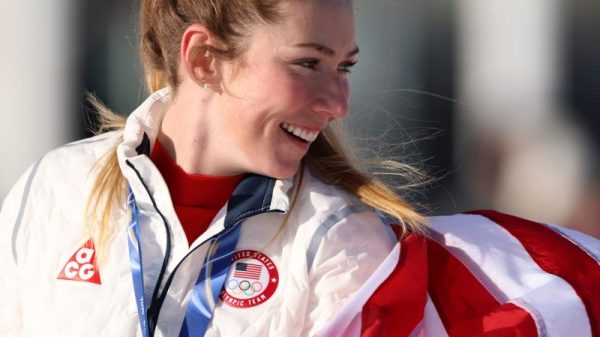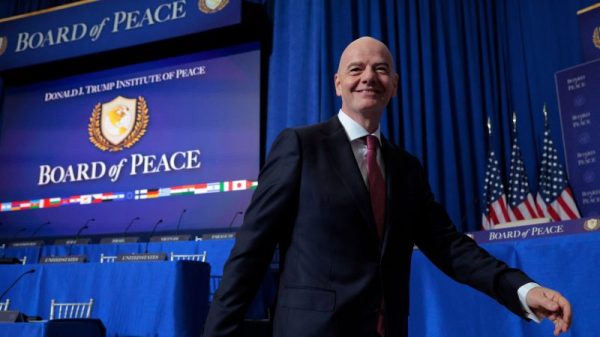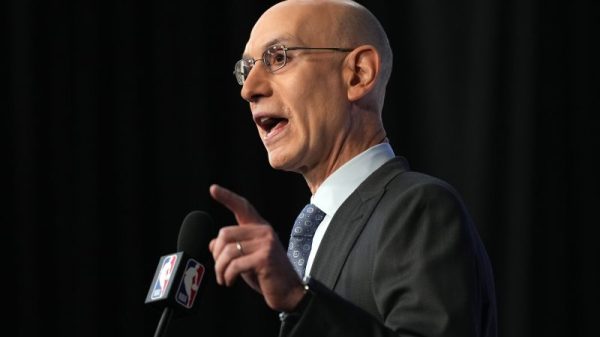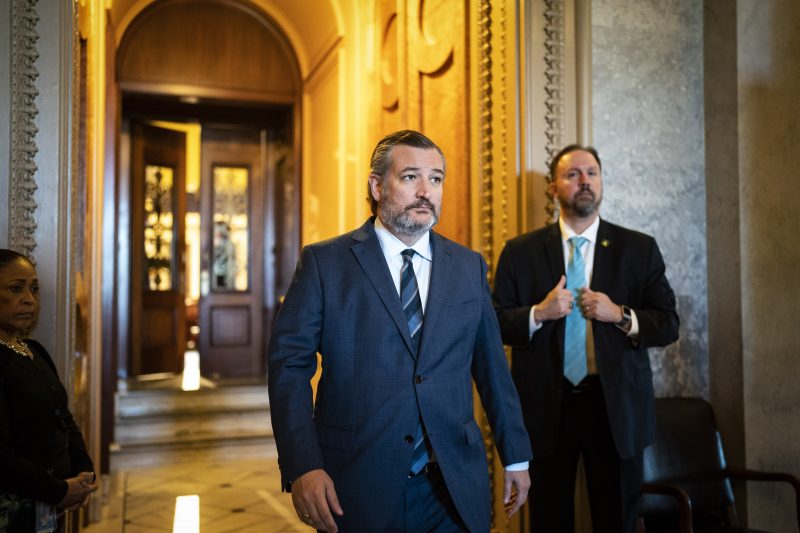One of Sen. Ted Cruz’s unusual skills as a politician is his ability to form-fit culture-war fights into the vernacular and processes of government. Perhaps it’s a function of the Texas Republican’s college-era debate experience, one of the central elements of his biography.
After all, those contests were mostly exercises in recasting the virulent subjects of the day into formalized presentations. What’s the difference between that and plucking a snippet from Fox News before turning it into something that could appear in the Congressional Record?
A good example of this emerged in the wake of the 2020 election. President Donald Trump was pressuring his allies to join him in calling the election results fraudulent. Senate Majority Leader Mitch McConnell (R-Ky.) was actively trying to keep his caucus from acceding. Cruz, pulled between Trump and McConnell, finally came out with a proposal: What if a congressional committee could “audit” the election results before the electoral votes were counted? He could go on Fox News and talk about fighting “fraud” and get attaboys from Trump, but do it in the guise of simply wanting to procedurally address “unprecedented allegations of voter fraud” — allegations stemming from Trump, of course.
This week, Cruz offered an even better example of how he fits political fights into senatorial robes.
Nearly two months ago, trans influencer Dylan Mulvaney posted a short video on Instagram in which she fawned over a few cans of Bud Light bearing her image. It was part of a promotion for the beer company — the post was hashtagged “#budlightpartner” — and promoted a Bud Light giveaway.
Measured by the amount of attention the promotion generated, Bud Light hit a home run. But, unfortunately for the brand and its parent company Anheuser-Busch, the vast majority of this attention was very much not positive. The promotion landed at a moment when the political right was particularly keen on using trans people and issues as a target of outrage, and company executives appear to have underappreciated the extent to which their consumer base was made up of members of the political right.
In an interview published earlier this year, Alissa Heinerscheid, Bud Light’s vice president of marketing, noted that Bud Light “had been kind of a brand of” — she paused, thinking of the proper word — “fratty, kind of out-of-touch humor.”
That isn’t really the right word. “Fratty” implies young, but Heinerscheid herself, at another point in the interview, noted that if “we do not attract young drinkers to come and drink this brand, there will be no future for Bud Light.” What do you get if you combine the ostentatiously (defensively?) machismo-laden vibe of the beer but realize it’s for a significantly older audience? You get a lot of Donald Trump voters.
The right-wing media recognized this very quickly. “Bud Light” has been mentioned more than 600 times on Fox News so far this year, compared to about 100 times on CNN and MSNBC combined. Mulvaney has been mentioned nearly 200 times on Fox.
Cruz obviously took note. On Wednesday, he and Sen. Marsha Blackburn (R-Tenn.), herself no stranger to surfing the outrage waves, sent a letter to the CEO of Anheuser-Busch. It took a month and a half, but Cruz finally figured out a way to compress the culture-war fury — that a beer conservatives liked to drink didn’t treat transgender people as gross or nonexistent — into the constraints of appropriate legislative consideration.
Well, it turns out that the CEO of Anheuser-Busch is also the head of the Beer Institute, which polices how companies market. And this cracked open a door.
“We write to ask that the Beer Institute’s Code Compliance Review Board open an investigation to review Anheuser-Busch’s recent and ongoing marketing partnership with Dylan Mulvaney,” the letter read. “The Beer Institute must examine whether your company violated the Beer Institute’s Advertising/Marketing Code and Buying Guidelines prohibiting marketing to individuals younger than the legal drinking age.”
That’s the argument: Mulvaney — whom the letter consistently misgenders, naturally — is an influencer with a young audience. By partnering with Bud Light, the company was (per Cruz and Blackburn) trying to prime kids for alcohol consumption, in keeping with Heinerscheid’s idea that the brand needed to appeal to “young drinkers.” The infamous Joe Camel campaign was, of course, mentioned.
It’s a slightly less toxic version of the “groomers” rhetoric that is so popular on the right, suggesting that kids are intentionally being set up for something nefarious.
In the letter, Cruz and Blackburn bolster their claims about the presumed age of Mulvaney’s audience with some truly misleading (if not misinformed) argumentation. That Mulvaney is known for documenting her transition in a series called “Days of Girlhood” is cited as though the name means that it is intended for children. One hopes that Cruz didn’t take his own young daughters to see the 2017 film “Girls Trip” in theaters due to a misapprehension about whom the film was depicting.
Mostly, though, Cruz and Blackburn cite data on the demographics of Instagram and TikTok users as evidence that the Bud Light promotion would be seen by kids. That TikTok was included is a tell; its audience skews much younger than Instagram’s, bolstering the argument — but the Bud Light video wasn’t published on the platform.
“For marketing professionals seeking to reach the age 16 to 24 year old cohort,” the letter reads, “Instagram is an ideal platform.” Ergo, the outreach “had both the design and effect” of marketing to kids.
You’ll notice this begs the question. Even if Instagram is the “ideal platform” for reaching 16-to-20-year-olds who can’t legally drink, that doesn’t mean that the Bud Light promotion was meant for that audience.
The Beer Institute’s guidelines mandate that ads can only be placed in formats where “at least 73.6% of the audience is expected to be adults of legal drinking age.” The Cruz-Blackburn letter suggests that Instagram didn’t meet that standard, based in part on the “young drinkers” line from Heinerscheid — Cruz must have been confused by the book “Young Guns”! — and on the “general demographics of Instagram.”
In 2021, the Pew Research Center found that 71 percent of 18-to-29-year-olds use Instagram, as do 48 percent of those ages 30 to 49. Smaller percentages of people 50 and over do, too, but even among those of retirement age, 1 in 8 report using Instagram.
Most of those retirees are admittedly probably not Dylan Mulvaney fans. But here’s a little back-of-the-envelope math. Instagram allows users to sign up if they are age 13 or older. If we apply Pew’s usage percentages to the number of people in each age range in America, and assume (probably erroneously) that usage is even throughout the 18-to-29 age range, only 24 percent of the total Instagram audience is under the legal drinking age if every 13-to-17-year-old in America is on Instagram. In that scenario, 76 percent could be expected to be adults of drinking age.
Mulvaney and her team did make one apparent mistake. Instagram’s rules mandate that branded content promoting alcohol be age-gated so that those under 21 can’t view it. I set up a new account for someone age 16, and the content was visible both when linked directly and on Mulvaney’s page.
But, of course, none of this is really about Bud Light marketing to kids. That’s just the vehicle that Cruz finally settled on as a way to leverage his elected power to get headlines in the culture-war fight over transgender visibility in America.
It worked.



























